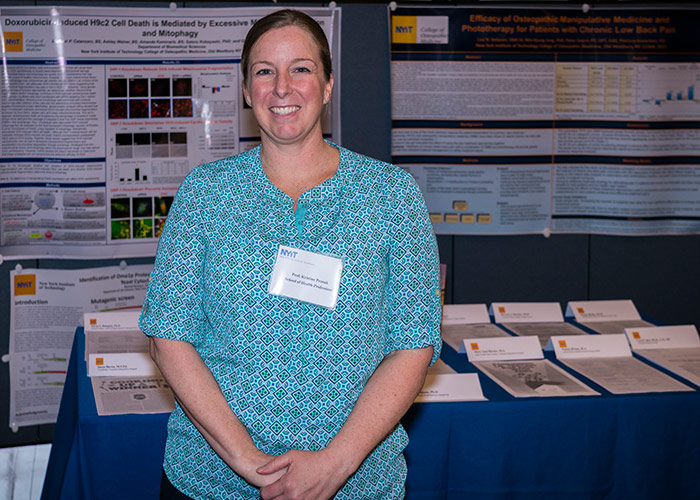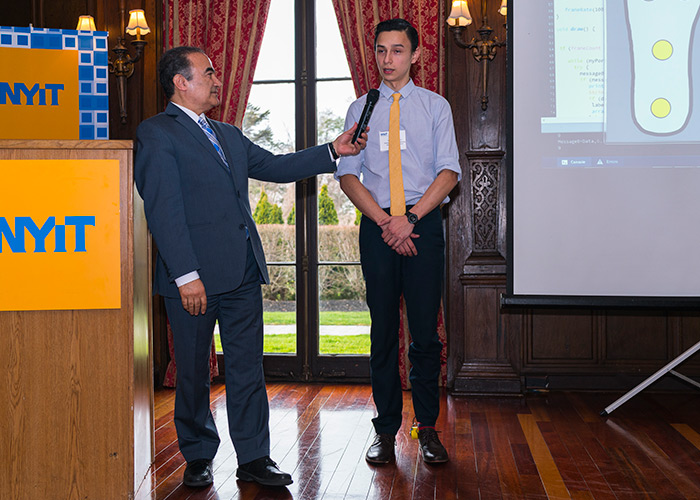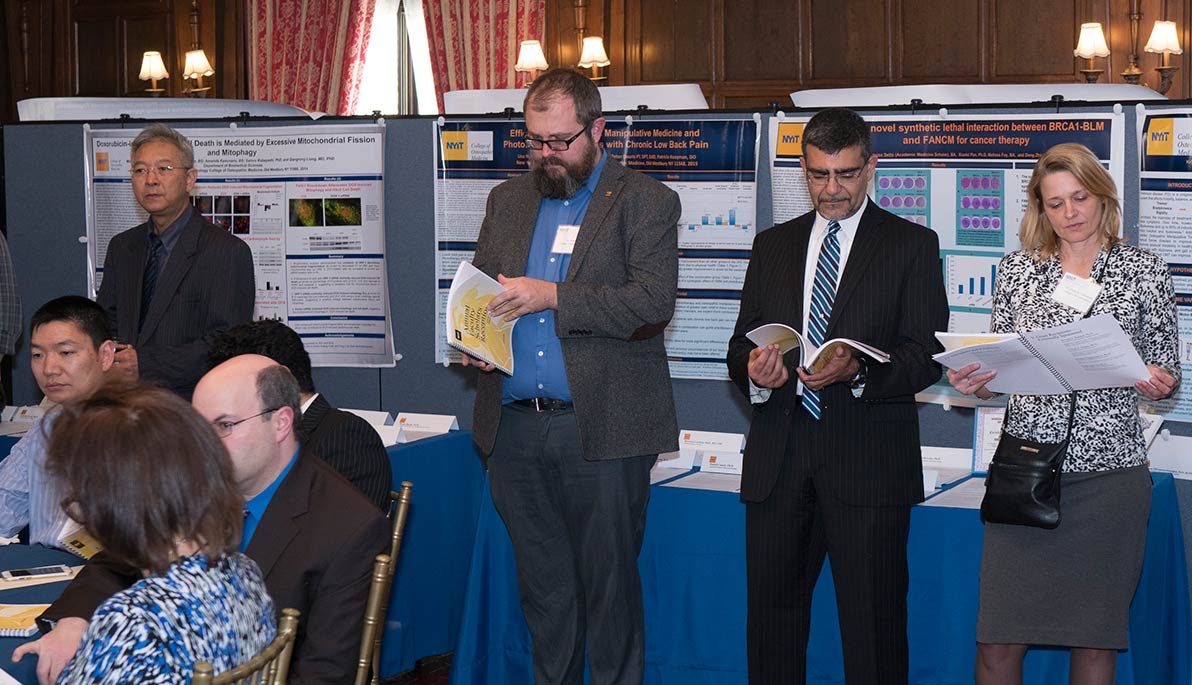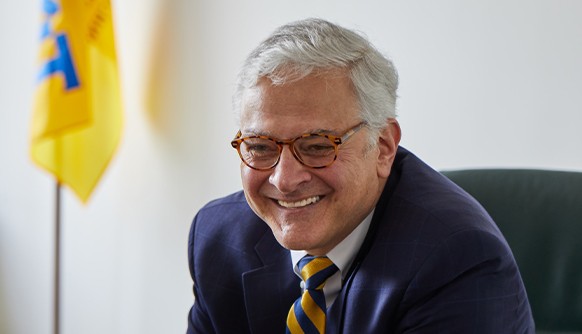News
Annual Reception Recognizes Faculty Scholarship
April 5, 2016
Photo: Members of the NYIT community read about their colleagues' research at the annual Faculty Scholars Reception.
Research ranging from urban planning and the impact of service learning, and from architecture to business and health and wellness, was in the spotlight at NYIT's annual Faculty Scholars Reception on March 31. NYIT full-time and adjunct faculty members shared their scholarly and creative work with colleagues and cheered each other's academic achievements.
"Your research is our distinctiveness," said President Edward Guiliano, Ph.D., to the crowd gathered at NYIT de Seversky Mansion. Universities are learning communities, and this event promulgates new ideas and celebrates our pursuit of new knowledge, he added.
The Faculty Scholars Reception, now in its 15th year, recognized work produced in 2015 by more than 160 faculty members of the global NYIT community (read more about the selection process). The impressive body of work includes:
- Nearly 100 authors, with more than 250 published works.
- More than 140 presenters who have appeared at nearly 200 conferences.
- More than 100 grant recipients.
- 13 awardees and honorees, three designers and exhibitors, and three patents.

Furthermore, NYIT educators have long been committed to sharing their talents with students, providing opportunities for them to contribute to the creation of knowledge and engage in applications-oriented research. This commitment was on full display as Provost and Vice President for Academic Affairs Rahmat Shoureshi, Ph.D., co-presented with Archenar (Archie) Yepes, a student from NYIT School of Engineering and Computing Sciences. They demonstrated a prototype of their research using a patented technology; namely, a smart shoe insole designed to help prevent falls and reduce neuropathy in diabetic patients.

Prior to the smart shoe demonstration, faculty members from each NYIT school and college presented highlights of their ongoing research, including:
- Nicholas Bloom, Ph.D., associate professor and chair, interdisciplinary studies and urban administration, provided an overview of his forthcoming book The Golden Age of American Planning.
- Jim Martinez, Ph.D., assistant professor, instructional technology, presented his research focused on how service learning can be used to transfer knowledge and practices related to STEM: science, technology, engineering, and mathematics.
- Jan Greben, adjunct professor, architecture, presented her research on the work of architect Eileen Gray.
- Fang Li, Ph.D., assistant professor, mechanical engineering, shared her progress on developing a multifunctional "lab-on-chip device" for cell mechanobiology studies.
- Aleksandr Vasiliyev, M.D., Ph.D., assistant professor, biomedical sciences, gave an overview of his research using zebrafish to study kidney development and regeneration.
- Rakesh Mittal, Ph.D., assistant professor, human resource management, and Birasnav Muthuraj, Ph.D., assistant professor, management, discussed their research on supply chain management.
- John Hanc, associate professor, communication arts, discussed the process of writing collaborations, using as an example his most recent book The Ultra Mindset: An Endurance Champion's 8 Core Principles for Success in Business, Sports, and Life.
- Kristine Prazak, assistant professor, physician assistant studies, highlighted her research on how an educational virtual patient impacts students' knowledge relative to end-of-life care.
The next opportunity to learn about scholarly activities at NYIT is SOURCE: Symposium of University Research and Creative Expression on April 15 at the Manhattan campus. Students will present their research and creative work guided by faculty mentors.




